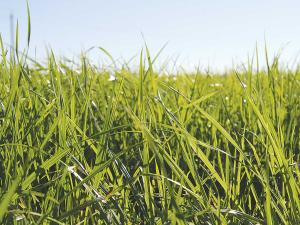Editorial: Having a rural voice
OPINION: The past few weeks have been tough on farms across the North Island: floods and storms have caused damage and disruption to families and businesses.
 Levies are collected from the following Commons: Nui, Moata, Manawa, Tama, Ruanui, Huia and Pawera, as well as uncertified ryegrass, red and white clover.
Levies are collected from the following Commons: Nui, Moata, Manawa, Tama, Ruanui, Huia and Pawera, as well as uncertified ryegrass, red and white clover.
The Non-Proprietary and Uncertified Herbage Seeds Levy order will continue for another six years.
Growers overwhelmingly supported the levy.
"In fact, from 82% in favour at the last levy vote in 2014, support shown during the vote last November had risen to 91%," says Federated Farmers Herbage Seedgrowers Subsection chairperson, Hugh Wigley.
Agriculture Minister Damien O’Connor and the rest of Cabinet have approved continuation of the levy, and it will be gazetted this week.
"Grasses and clovers are vital to our sector but contracts for growing from proprietary seed are not always available and are more expensive. This levy safeguards supply of non-proprietary and uncertified seeds and provides different options to our farmers," says Wigley.
The Commodity Levies (Non-proprietary and Uncertified Seeds) Order, known as the Commons, was first mandated in 1997 when the responsibility for maintaining these cultivars was transferred to industry from Government.
Levies are collected from the following Commons: Nui, Moata, Manawa, Tama, Ruanui, Huia and Pawera, as well as uncertified ryegrass, red and white clover.
For the Commons to continue to be publicly available, live nucleus and pre-nucleus seed of each of the Commons must be maintained to make breeders and basic seed available to growers.
It costs an estimated $180,000 for Grasslanz Technology to ensure this base material is available to growers.
About 15 to 20% of this material comes from the commercial sale of breeders and basic seed, while the remainder comes from the levy.
The levy is collected on behalf of Federated Farmers by all seed testing stations on the first purity and germination test. It is set at a fixed per kg cost on the projected harvest of each of the Commons and the estimated kg price received by the grower. The maximum levy rate is 5%, although it is typically around 1.5 to 2%.
According to the latest Fresh Produce Trend Report from United Fresh, 2026 will be a year where fruit and vegetables are shaped by cost pressures, rapid digital adoption, and a renewed focus on wellbeing at home.
The Roar is a highlight of the game hunting calendar in New Zealand, with thousands of hunters set to head for the hills to hunt male stags during March and April.
OPINION: The past few weeks have been tough on farms across the North Island: floods and storms have caused damage and disruption to families and businesses.
European dairy giant Arla Foods celebrated its 25th anniversary as a cross-border, farmer-owned co-operative with a solid half-year result.
The sale of Fonterra’s global consumer and related businesses is expected to be completed within two months.
Fonterra is boosting its butter production capacity to meet growing demand.